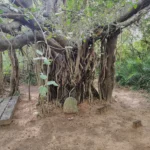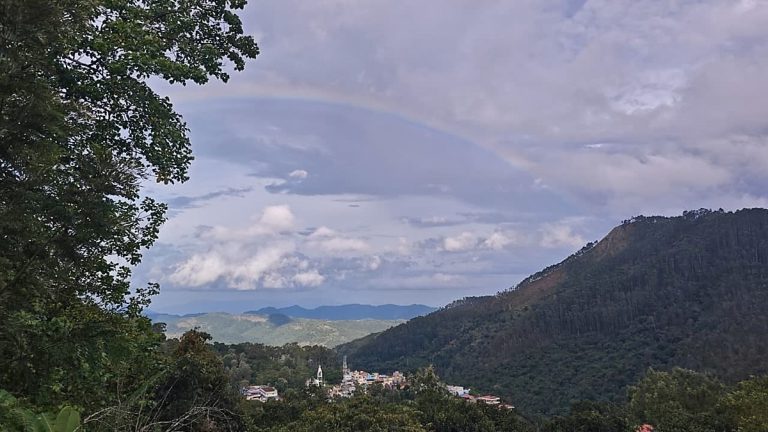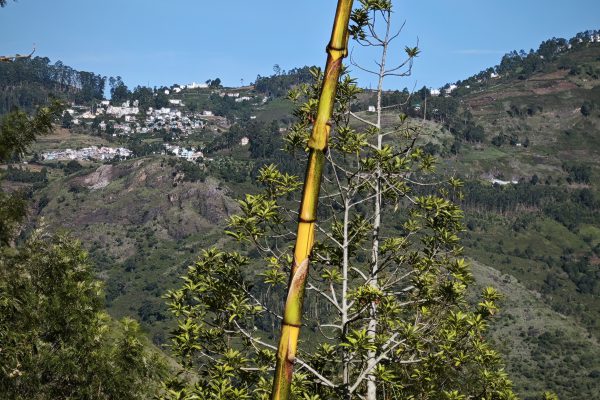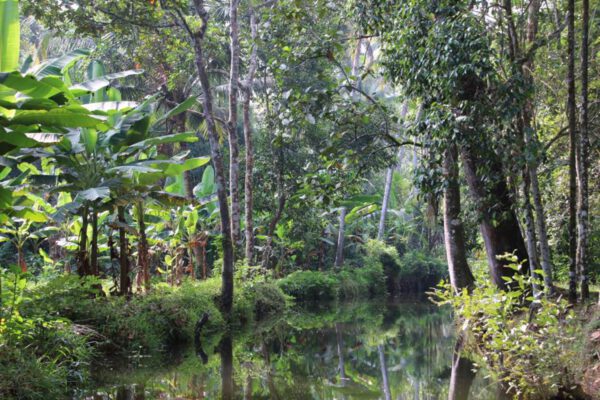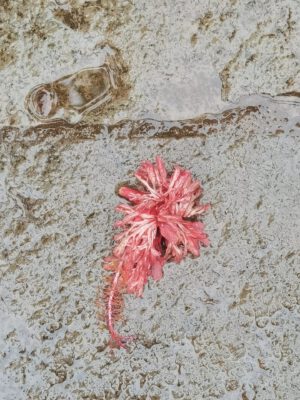II think about Deleuze, the movement of becoming (becoming). To extinguish the sound of the stream, I must become the sound; to enter the stream, I become part of it. When I linger in the forest, I take part in the silence and the chirping, the rustling of the leaves. I become one with nature.
That idea of Romanticism - oneness with nature, with a loved one, with the cosmos, with God - generates bliss, delight, bliss, ananda. Deleuze certainly does not use these terms. His philosophy of immanence, of nonduality, attempts to describe the changes of the world, its becoming and disintegration, its construction, its structure, its order, its laws and dynamics through terms such as becoming, deterritorialization, flight, rhizome, repetition, rhythm, etc.. However, his philosophy remains essentially a movement of the concept.
He breaks away from the rigidity of Anglo-American philosophy of language, which focuses on an empirical concept of truth, and instead attempts to describe movements of thought that depict a more complex reality. The central question remains, however, how our thinking, our perception, our experience, our being can be directed towards something outside of ourselves - how our consciousness can draw something into itself, process it, analyze it, observe it and experience it. How can my consciousness become one with what it has as its object? This fundamental problem of almost all Western models of dualism can actually only be resolved through immanence.
When I step into a stream in my imagination and try to switch off the sound, I have to become one with that stream. How do I become one - regardless of whether I actually step into the stream or just imagine it? This is how I experience it in meditation: My consciousness sinks into the depths of existence, understands itself as part of the whole, becomes one with that primordial consciousness, emptiness, Brahman, existence, and sees itself as identical with what it is in its self-awareness.
When I hear a stream rushing, the noise is nothing other than my consciousness itself: the vibration of the water and the vibration of the air, the vibrations and my ear that receives them, my consciousness, which is that primordial resonance, is identical with it, already contains everything in the world within itself. It's a bit like Leibniz's monad; he also had a good thought there, even if he didn't immerse himself in real experience, but remained stuck at the level of the text and truthful statements.
I will (become) thus one with that which is to be extinguished in the koan. By becoming identical at the deepest level of emptiness and recognizing its form, I can give expression to this form. I can now imitate the sound of the stream or imitate its movement, I can bathe in it and flow with it, or I can paint it, perhaps in an ink drawing; I can describe it poetically or try to express it in some other way. But that expression is not identical with being identical - it refers to it.
